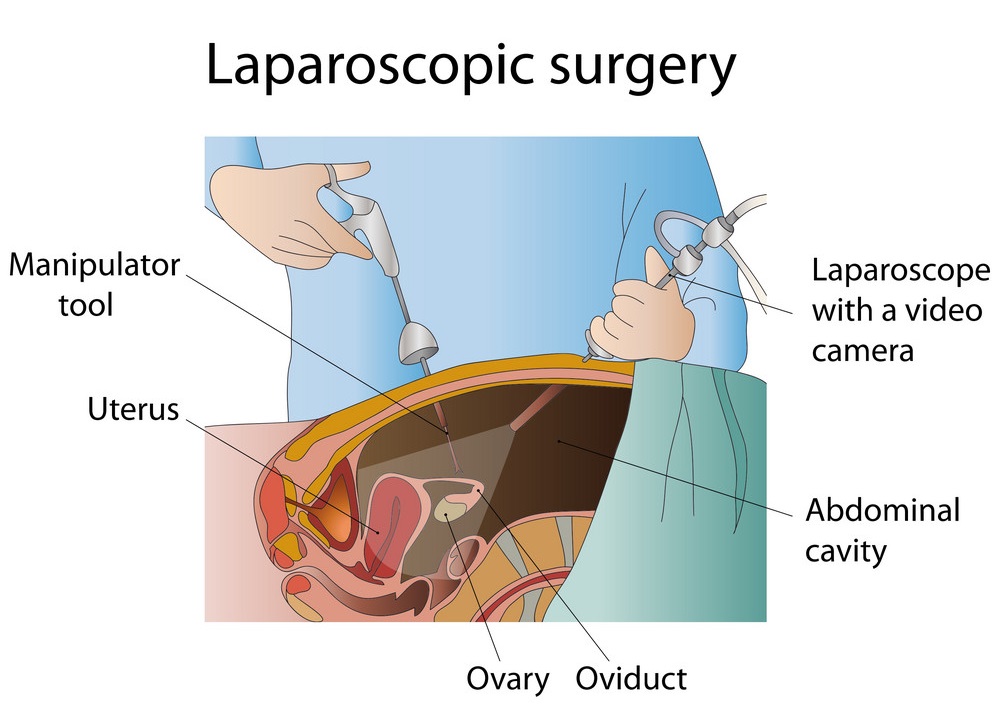What We Offer
What is Laparoscopy
Laparoscopy for infertility is a minimally invasive surgical procedure in which a telescope-like instrument (laparoscope) with light and small camera allows the surgeon to examine the pelvic anatomy for causes of female infertility. Laparoscopy is widely utilised to diagnose and treat acute and chronic, gynaecological and general surgical conditions. It has only been in recent years that laparoscopy has become an acceptable surgical alternative to open surgery in pregnancy. To date there is little clinical guidance pertaining to laparoscopic surgery in pregnancy. This is why the BSGE commissioned this guideline. The intended audience for this guideline is obstetricians and gynaecologists in secondary and tertiary care, general surgeons and anaesthetists. However, only laparoscopists who have adequate laparoscopic skills and who perform complex laparoscopic surgery regularly should undertake laparoscopy in pregnant women, since much of the evidence stems from specialised centres.
Overview
Laparoscopy allows your doctor to see the abdominal organs and sometimes make repairs, without making a larger incision that can require a longer recovery time and hospital stay. Whether or not diagnostic laparoscopy should be done in women with infertility is controversial. - If a woman is experiencing pelvic pain, then the consensus is that surgery may be recommended. However, in cases of unexplained infertility, or situations where pelvic pain is not a factor, whether the benefits of the surgery outweigh the risks is a matter of debate.
Can laparoscopy increase chances pregnancy ?
For some women, who have undergone a laparoscopy to remove fibroids or endometriotic lesions, repair a hydrosalpinx, unblock a fallopian tube, or reverse a tubal ligation, the surgery actually increases the chances of getting pregnant. However, there are some cases where laparoscopy may affect your ability to conceive.
Why is laparoscopy done ?
Laparoscopy is often used to identify and diagnose the source of pelvic or abdominal pain. It's usually performed when noninvasive methods are unable to help with diagnosis.
Why It's Needed ?
Some causes of infertility can only be diagnosed through laparoscopy. (Endometriosis, for example.) Laparoscopy allows your doctor to not only see what's inside your abdomen but also biopsy suspicious growths or cysts. Also, laparoscopic surgery can treat some causes of infertility, allowing you a better chance at getting pregnant either naturally or with fertility treatments. The most important reason for diagnostic laparoscopy is if you’re experiencing pelvic pain. Laparoscopy can be used to remove scar tissue, a fibroid, or endometrial deposits that are causing pain.
